10 Plants You Should Hide From Your Neighbors
There are many reasons why you should hide some plants from your neighbors. If you live in an HOA area, there are rules about which plants you can grow and which are outlawed. Additionally, in a SHTF situation, edible and medicinal plants might be harvested by neighbors or others in need without regard for protecting your supply for the future.
There are many ways to hide valuable food sources and medicinal plants. One way would be to plant them mixed into your landscaping as part of your flower garden, or as part of a landscape feature. If this is not possible, bring them indoors to grow in pots or hydroponically. However you do it, protect your most valuable medicinal plants from being raided or destroyed by others.
These 10 plants definitely deserve a place in your medicinal garden, but you may need to hide them from your neighbors:
Dandelion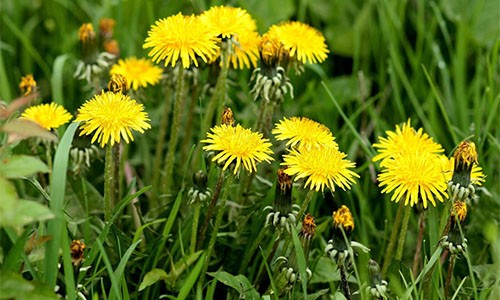
Your neighbors know dandelion as a weed to be exterminated at all costs. But this plant is a valuable medicinal plant for your garden. You might get away with a growing dandelion in a flower garden if you remove the flowers before the seed head develops. Dandelion is valuable for:
- Use as a diuretic;
- Cures liver problems;
- Improves pancreas function;
- Cleansing tonic for blood vessels;
- Balances blood sugar;
- Reduces cholesterol.
California Poppy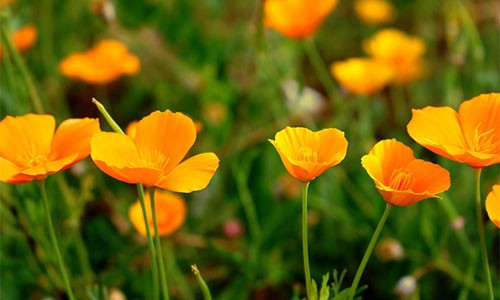
If you can hide some California poppy in your flower garden, you’ll be richly rewarded when the time comes to use it. Its use as an anxiety reliever and pain reliever makes it extremely valuable in a SHTF situation. If it doesn’t grow in your climate, try growing it in pots indoors.
Wild Quinine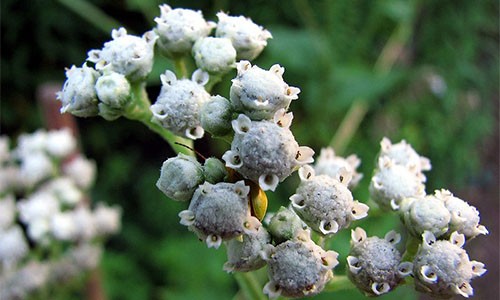
If you have a source of wild quinine, nurture it and hide it. In addition to potentially treating our current plague of Coronavirus, it has many medicinal uses.
It treats infections of all types, including respiratory infections, gastrointestinal infections, venereal diseases, malaria, debility, and fatigue. It is also beneficial for the kidneys, especially in dissolving kidney and bladder stones.
Related: How To Make Tea Tree Oil To Treat Infections
Turmeric And Ginger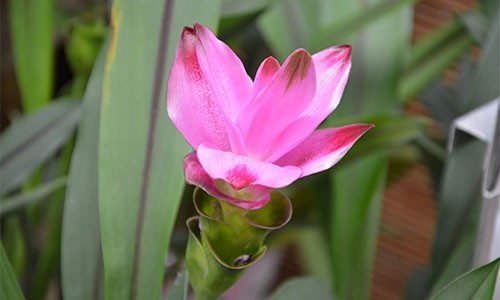
Both turmeric root and ginger root are powerful anti-inflammatories. And inflammation is the root cause of most of our diseases as we age. With the possible exception of bacterial and viral infections, turmeric and ginger are beneficial for treating the inflammation in almost all illnesses.
Fortunately, most people wouldn’t recognize the plants, so you may be able to hide them in your borders as an ornamental.
Feverfew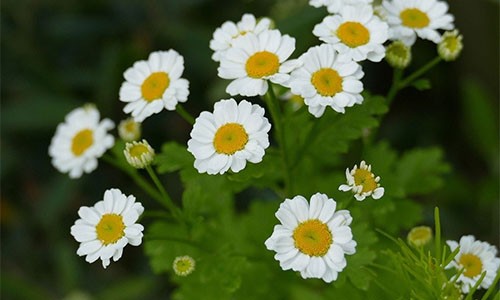
With well-known and well-documented health benefits, feverfew is worth hiding in your herb or flower garden. Its anti-inflammatory properties are known to treat rheumatism, arthritis, migraines, and tension headaches. It is also a natural serotonin inhibitor, naturally relieving anxiety and tension.
Related: How to Make Anti-Inflammatory Band-Aid Using Plantain
Medicinal Mushrooms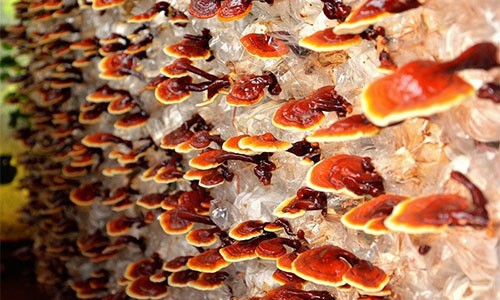
Medicinal mushrooms are particularly valuable in fighting cancer and balancing the immune system. Many of the medicinal mushrooms are rare and should be hidden and protected if you have a wild source.
However, unless you are an expert, do not harvest or eat any wild mushrooms. You can grow your own from purchased spores. Reishi, Shiitake, Maitake, Mannentake, and cordyceps are valuable for medicinal use along with others.
Aloe Vera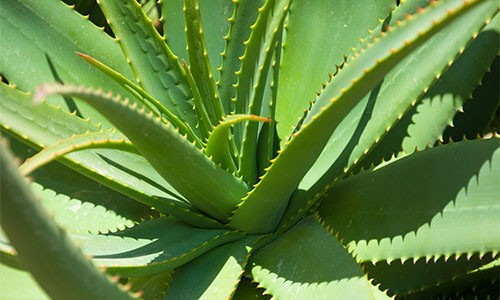
Aloe vera is another valuable medicinal plant that everyone is going to want when a disaster happens. It is easily recognizable and roots easily from a leaf. When the pharmacy is not available, you may find your neighbors coveting a piece of your aloe vera. Use aloe to treat:
- Burns, wounds, and cuts;
- Eczema, skin allergies, and skin diseases;
- Digestive problems;
- Constipation;
- Ulcerative colitis.
Related: How to Make a Healing Salve with Cabbage and Aloe Vera
Peppermint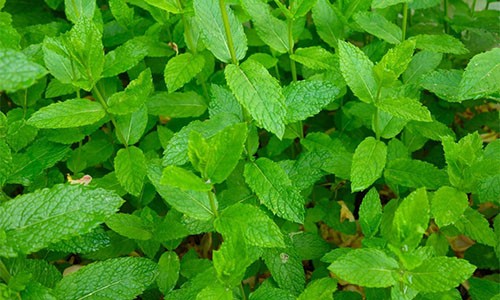
Peppermint is one of the most powerful herbal plants for treating illness. It is easy to grow under the right conditions but does not grow from seed. Get a true peppermint plant, Mentha piperita, cultivated from roots or propagated from a rooting, and protect it from year to year.
Use peppermint to treat digestive issues, nausea, irritable bowel syndrome (IBS), skin conditions, headaches, colds, flu, and fever.
Bitter Melon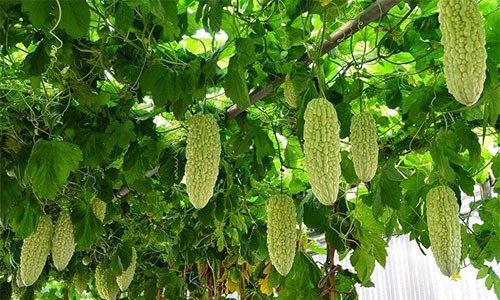
While bitter to taste, bitter melon is edible and medicinally active. It is recognizable as a food and medicine to many people and you may find your garden raided during an emergency situation.
The fruit is extremely valuable in reducing blood sugar, purifying the blood, treating skin conditions, reducing inflammation, boosting the immune system, and fighting cancer. It is an antifungal and antibacterial and it protects the heart, kidneys, and liver.
Wild Lettuce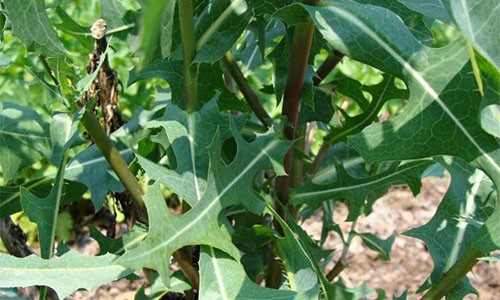
If you have a source of wild lettuce, hide it to protect it and consider growing it in your medicine garden. Wild lettuce, Lactuca sativa, is often called lettuce opium because of its ability to relieve pain.
It can be used orally or topically as a powerful pain reliever, mild sedative, and hypnotic. When pain strikes, it is helpful to have a wild lettuce plant nearby.
Hiding your most valuable medicinal plants is not about hoarding them. We want you to share your knowledge in medicinal herbs and we certainly want you to share the remedies when needed.
However, you need to protect your sources so that they will be available to you for years to come. If your garden is raided and all your supply is depleted, it may be difficult to find replacements in an emergency. So, think strategically and hide a few of your most valuable plants for preservation.
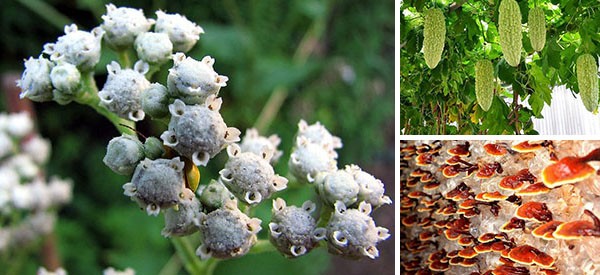
Comments
Post a Comment